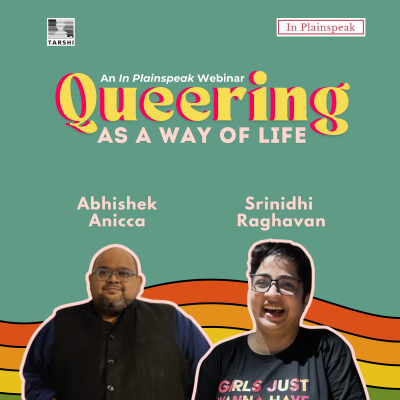Sexuality
When a literary canon is created and upheld, which are the voices that are amplified and which are the voices that are lost in the fray? Can marginalised bodies and experiences truly find representation in such a canon?
Going on a first date with someone one has never met can be a fraught experience, especially if it is…
What follows, in the short film Chutney, is a conversation – full of eerie, evocative storytelling – which not just sheds light on the class hierarchies in the middle to upper-middle class Indian household, but also the anxieties surrounding sexuality and sexual repression within it.
In the short film, Baby Steps, a seemingly mundane Skype conversation between a mother and son turns into something more.
A short movie with a twist ending, Belle de Jour (meaning ‘Beauty of the Day’, and this one is not the 1967 film by Luis Buñuel) begins by showing a stereotypical middle-class Indian woman who goes to work after taking care of her household.
The short film, “#Purana Pyaar”, by Gorilla Shorts, starring veteran actors Mohan Agashe and Lillette Dubey, evocatively highlights how age is no bar when it comes to love and desire.
The short film, “#Purana Pyaar”, by Gorilla Shorts, starring veteran actors Mohan Agashe and Lillette Dubey, evocatively highlights how age is no bar when it comes to love and desire.
At TARSHI, we see queering as more than just an adjective; it’s a verb, an action that involves questioning accepted…
I still remember my early childhood days when we used to get lessons on caste in our day-to-day lives. Coming…
Some weeks ago, I was invited by the British High Commission to give a talk about sexual harassment at the…
She turns towards me when I speak, and I can feel her eyes thinking over my words, sensitive to any hint of criticism. Her thighs slide against mine, and for a moment we are both distracted by the naked coolness of our bodies. For a moment, we look at each other.
‘People say, someone who has a disability should not indulge in sex,’ Inocente, a blind man in his 40s, told…
The Handmaid’s Tale leads one to re-examine these two forms of social hierarchy that women have to navigate: one where they apparently have equal sexual rights as men but have to bear most of the brunt of unwanted pregnancies, reproductive burdens and the like, and the other extreme where their decisions including those about sexual identity and procreation are institutionalised and they are robbed of all agency and autonomy.
What makes Unashamed particularly effective within the framework of CSE is Bhat’s unwavering commitment to an inclusive and affirming perspective.
Lack of women’s representation in policy-making institutions has allowed men, often with minimal understanding and empathy, to decide what women in sports can or cannot wear. As a result, these policies have ended up undermining women’s comfort as well as agency.














